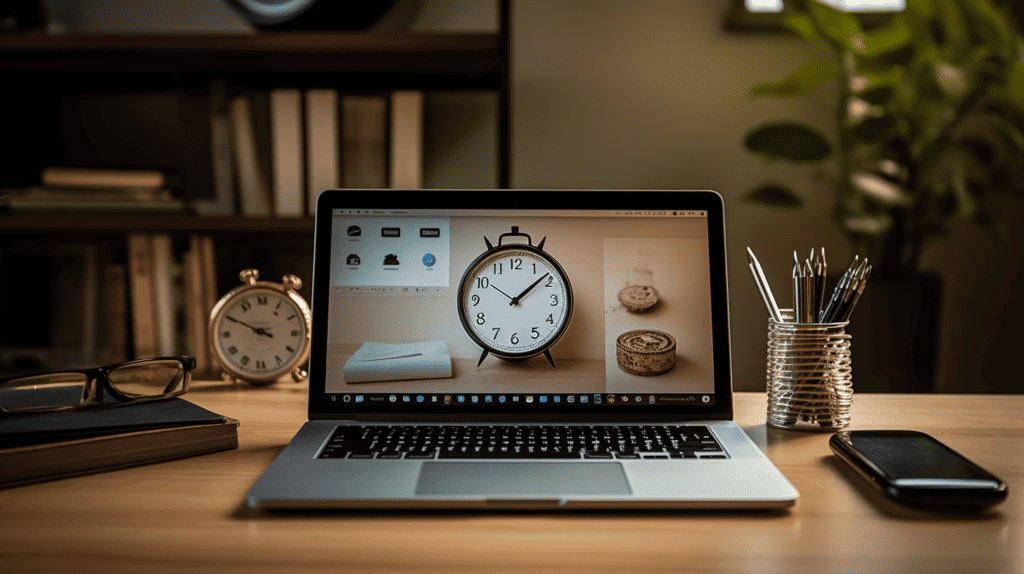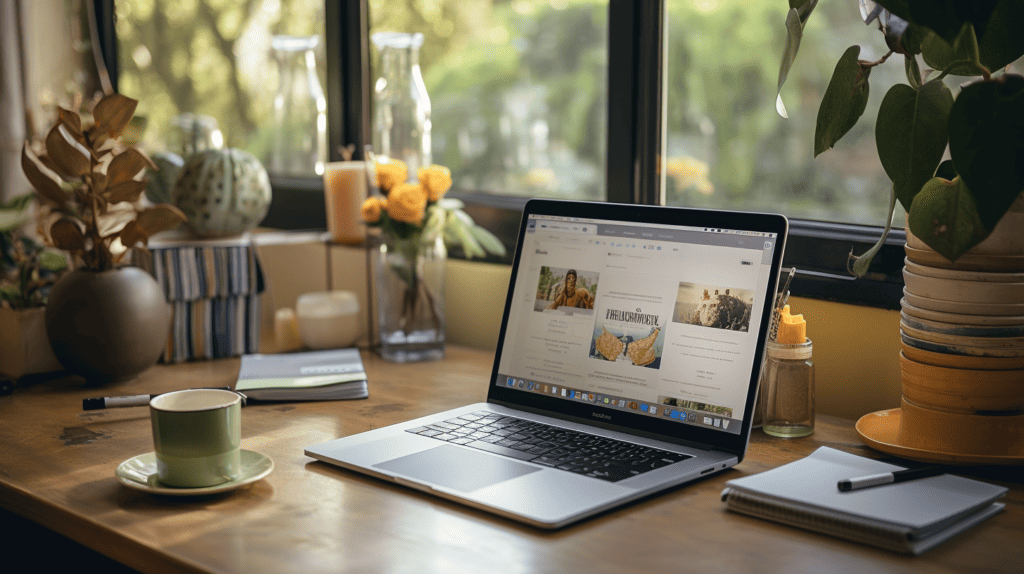Welcome to my article on time management multitasking, where I will share my insights on how to optimize productivity. Time is a precious resource, and managing it effectively can make a significant difference in achieving our goals and fulfilling our aspirations. By mastering time management multitasking, we can accomplish more in less time and enjoy a better work-life balance.
In today’s fast-paced and competitive world, time management multitasking has become an essential skill for success. The ability to juggle multiple tasks and responsibilities simultaneously is highly sought after by employers and valued by individuals seeking to accomplish their goals.
Key Takeaways:
- Effective time management and multitasking skills lead to achieving more in less time.
- Mastering time management and multitasking is essential for success in today’s fast-paced world.
- Time management multitasking allows individuals to accomplish more and enjoy a better work-life balance.
Understanding Time Management
Time management is the process of organizing and planning how much time we spend on various activities. Effective time management skills can help individuals accomplish more in less time, reduce stress and anxiety, and boost productivity. Managing time well is crucial to achieving both personal and professional goals.
To manage time effectively, it is essential to first understand the key skills needed. Here are some essential time management skills:
| Time Management Skills | Description |
|---|---|
| Goal setting | Setting clear and achievable goals is key to managing time effectively because it helps individuals prioritize their tasks. |
| Prioritization | It is important to identify the most critical tasks, allowing individuals to focus on what’s important before moving on to less urgent tasks. |
| Planning | Creating a schedule or plan, breaking down tasks into manageable steps, and estimating the time needed can help individuals manage their time effectively. |
| Delegation | Learning to delegate tasks can help individuals free up time for other important tasks, minimizing stress, and achieving goals faster. |
There are various techniques individuals can use to manage their time more effectively. Here are some time management tips:
- Create a to-do list: Writing down tasks and prioritizing them can help individuals stay on top of their work and ensure that nothing is forgotten.
- Avoid procrastination: Procrastination can lead to increased stress and decreased productivity. Try working on the most challenging tasks first.
- Use a calendar: Using a calendar can help individuals keep track of their schedule and ensure that they don’t double-book or forget important appointments.
- Take regular breaks: Taking regular breaks can help individuals recharge, stay focused, and increase productivity.
By implementing these techniques and skills, individuals can improve their time management, reduce stress, and achieve their goals more efficiently.
The Benefits of Multitasking
Effective multitasking can lead to increased productivity and faster task completion. By multitasking, individuals can work on multiple tasks at the same time, allowing them to achieve more in less time.
One benefit of multitasking is that it can prevent procrastination. When individuals have multiple tasks on their plate, they are less likely to put off completing them. Instead, they can work on each task simultaneously and make progress on all of them.
Another benefit of multitasking is that it can help individuals prioritize. By working on multiple tasks at once, they can quickly identify which tasks are the most urgent and important. This can help them make better use of their time and ensure that they complete the tasks that matter most.
However, it’s important to note that multitasking is not always the best approach. Some tasks require undivided attention and focus, and attempting to multitask can actually decrease productivity. It’s important to assess each task individually and determine whether multitasking is an appropriate approach.
Overall, when done effectively, multitasking can be a valuable tool for increasing productivity and accomplishing tasks efficiently. By understanding when and how to multitask, individuals can make the most of their time and achieve their goals more quickly.

Time Management and Multitasking: A Winning Combination
Effective time management and multitasking are two vital skills that can work synergistically to boost your productivity and efficiency. By properly managing your time and multitasking, you can accomplish more in less time, allowing you to be more productive and achieve your goals faster. Here are some ways that time management and multitasking can work together:
| Benefit | Description |
|---|---|
| Efficient use of time | When you are able to manage your time effectively, you can maximize the amount of work you are able to do. By multitasking, you can complete multiple tasks simultaneously, further increasing productivity. |
| Flexibility | By multitasking, you can switch between tasks as needed, allowing you to adapt to changing circumstances and priorities. |
| Reduced stress | When you are able to manage your time effectively and complete tasks efficiently, you can reduce stress and enjoy a better work-life balance. |
By combining time management and multitasking techniques, you can achieve more in less time while maintaining your focus and reducing stress.
Overcoming Common Challenges
Improving time management and multitasking skills can be challenging, but it’s not impossible. Here are some common challenges and practical solutions to overcome them:
Procrastination
Procrastination can be a significant obstacle to effective time management and multitasking. When we put off tasks, we end up with less time to complete them, leading to increased stress and reduced productivity.
To overcome procrastination, try breaking tasks down into smaller, more manageable chunks. Set realistic deadlines and hold yourself accountable. If necessary, seek support from a friend or colleague to help you stay on track.
Distractions
Distractions can disrupt our focus and interfere with our ability to multitask effectively. Common distractions include social media, emails, and notifications.
To overcome distractions, try setting designated times to check for messages or emails. Close unnecessary tabs and apps during work or study time, and consider using tools like noise-cancelling headphones or focus timers to help you stay on track.
Overcommitment
Overcommitting ourselves can lead to increased stress, reduced productivity, and ultimately, burnout. It’s essential to prioritize tasks and set realistic goals to avoid spreading ourselves too thin.
To overcome overcommitment, try saying no to tasks or commitments that don’t align with your priorities or goals. Delegate tasks when possible, and don’t be afraid to ask for help when needed.

Tools and Resources for Time Management Multitasking
Effective time management and multitasking can be challenging, especially with the numerous distractions of modern life. Fortunately, there are many tools and resources available to assist you in achieving greater productivity and managing your time more efficiently. Here are some of my top recommendations:
1. Productivity Apps
There are countless productivity apps available for download that can help you keep track of your tasks, set reminders, and manage your time more effectively. Some popular options include Trello, Todoist, and Evernote. Experiment with different apps to find the ones that work best for you.
2. Time Management Software
If you work on a computer for extended periods, consider trying time management software like RescueTime or TimeDoctor. These tools track how you spend your time and provide data on which applications or websites you use most frequently. You can then use this information to adjust your workflow and focus on the most important tasks.
3. Online Calendars
Online calendars like Google Calendar or Outlook can help keep you organized and on track. Use them to schedule meetings, set reminders, and block out time for specific tasks. Many online calendars can be synced with your phone, making it easy to stay on top of your schedule no matter where you are.
4. Time Tracking Tools
Time tracking tools like Harvest or Tick can help you keep track of how much time you spend on different tasks throughout the day. This data can help you identify areas where you might be wasting time and make adjustments to optimize your workflow.
5. Focus Boosting Tools
If you find yourself easily distracted, consider trying a focus-boosting tool like Brain.fm, which uses science-based music to help you concentrate. Other options include noise-cancelling headphones or tools like StayFocusd, which limits the time you spend on distracting websites.
6. Time Management Courses or Workshops
If you’re serious about improving your time management skills, consider taking a course or attending a workshop. Many universities, community colleges, and online learning platforms offer courses on time management and productivity.
By using these tools and resources, you can take control of your time and achieve greater productivity than ever before.

Time Management and Multitasking in the Workplace
As someone who has worked in various professional settings, I understand the importance of effective time management and multitasking in the workplace. In order to succeed and excel in my career, I’ve had to develop a set of skills and strategies to help me manage my time and tasks effectively. Here are some tips and techniques that have worked for me:
Organize Your Day
One of the main challenges in the workplace is knowing how to prioritize tasks. To ensure that I’m able to complete everything on my to-do list, I start each day by creating a list of tasks in order of importance. This helps me stay focused and ensures that I’m not wasting time on less important tasks.
Delegate Tasks When Possible
Another way to manage your time effectively in the workplace is by delegating tasks to others when possible. If you have a team, don’t be afraid to delegate tasks to others who are better suited to complete them. This frees up your time to focus on tasks that require your attention.
Make Use of Technology
Technology can be a great tool for managing your time in the workplace. There are many apps and software programs available that can help you stay organized and manage your tasks more effectively. For example, I use a calendar app to schedule meetings and deadlines, which helps me stay on track and avoid missing important tasks.
Take Breaks
It may seem counterintuitive, but taking breaks can actually help you manage your time more effectively. When you take breaks, you give your brain a chance to rest and recharge, which can actually help you be more productive when you return to your tasks. I often take short breaks throughout the day to go for a walk or get some fresh air, which helps me stay focused and productive over the long term.
Maintain Work-Life Balance
Finally, it’s important to maintain a healthy work-life balance in order to manage your time effectively in the workplace. When you’re constantly working and never taking time for yourself, you’re likely to become burnt out and less productive. I make sure to set aside time each day for activities that I enjoy, such as spending time with family and friends or pursuing hobbies.
By implementing these strategies, you can become more effective at managing your time and tasks in the workplace. Remember that everyone works differently, so it’s important to discover what works best for you and adjust your strategies accordingly.

Time Management and Multitasking for Students
As a student, it can be challenging to balance academic responsibilities with extracurricular activities, part-time jobs, and a social life. However, with effective time management and multitasking skills, students can achieve their goals and reduce stress.
Setting Priorities
The key to effective time management is setting priorities. As a student, it’s essential to prioritize your academic responsibilities, such as studying and completing assignments, followed by other commitments. This can help you stay on track and reduce the likelihood of procrastination.
You can use a daily or weekly planner to keep track of your tasks and deadlines. When planning your schedule, make sure to allocate enough time for each activity and avoid overloading your schedule. A study has shown that cramming for exams and working on projects at the last minute leads to lower levels of productivity and achievement.
Effective Multitasking
While multitasking can be beneficial, it’s important to remember that not all tasks can be done simultaneously. However, some tasks can be combined, such as studying while commuting or listening to audiobooks while doing chores.
Effective multitasking requires good time management skills. It’s essential to set boundaries and focus on the task at hand while avoiding distractions. For example, you can turn off your phone or social media notifications while studying to avoid interruptions.
Tips for Success
Here are some tips to help you balance your academic responsibilities and other commitments:
- Break large tasks into smaller, manageable tasks
- Set realistic deadlines
- Take breaks and allow time for self-care
- Minimize distractions and focus on the task at hand
- Collaborate with classmates for group projects
By implementing these strategies, you can improve your time management and multitasking skills, leading to increased productivity and success as a student.

Time Management Multitasking for Busy Professionals
As a busy professional, time is a precious commodity, and managing it effectively can make all the difference in your productivity and success. To make the most of your time, here are some practical time management and multitasking techniques to keep in mind:
1. Prioritize Tasks
One of the most effective ways to manage your time is to prioritize tasks based on their importance and urgency. Start by listing all the tasks you need to complete and then categorize them as follows:
| Category | Description |
|---|---|
| Urgent and important | These tasks should be your top priority and completed as soon as possible. |
| Non-urgent but important | These tasks are important but can be scheduled for later. |
| Urgent but not important | These tasks are urgent but don’t require your immediate attention. Consider delegating them to someone else. |
| Not urgent and not important | These tasks can be postponed or not done at all. |
2. Break Tasks into Smaller Ones
Large tasks can be overwhelming, so break them down into smaller, more manageable ones. This will help you stay focused and motivated, and also give you a sense of progress as you complete each small task.
3. Use Time Management Tools
There are many digital tools and apps available to help you manage your time effectively. Some popular examples include:
- Todoist: A task manager that helps you organize and prioritize tasks.
- Pomodoro Technique: A time management method that breaks work into intervals separated by short breaks.
- RescueTime: A tool that tracks how you spend your time on your computer or phone and provides insights on how to be more productive.
4. Delegate Tasks
As a busy professional, it’s essential to delegate tasks whenever possible. This will free up your time for more important tasks while also developing the skills of your team members.
5. Limit Multitasking
While multitasking can be useful, it’s important to limit it to tasks that don’t require a lot of focus or attention. When working on complex or important tasks, it’s best to focus on one task at a time to ensure the best results.
By applying these time management and multitasking techniques, you can optimize your productivity and achieve a better work-life balance as a busy professional.

The Future of Time Management Multitasking
As the world becomes increasingly fast-paced and interconnected, the demand for effective time management and multitasking skills continues to grow. In the future, we can expect to see new technologies and methodologies emerge that enhance the way we approach managing our time.
One development that is already gaining momentum is the use of artificial intelligence and machine learning to streamline time-consuming tasks. By automating repetitive tasks and analyzing data, AI can help individuals identify areas for improvement in their time management and multitasking strategies.
Another trend we can expect to see is an increased focus on work-life balance. As individuals strive to optimize their productivity, it is crucial to prioritize self-care and personal relationships. Employers may also offer more flexible schedules and remote work options to support this balance.
Finally, we can anticipate a continued emphasis on mindfulness and mental health in relation to time management. As the negative effects of stress and burnout become more widely recognized, individuals and organizations may prioritize practices such as meditation, exercise, and breaks to improve focus and productivity.
In conclusion, the future of time management and multitasking is promising. By embracing new technologies and methodologies, prioritizing work-life balance, and promoting mindfulness and mental health, individuals can unlock their full potential.
Conclusion on Time Management Multitasking
Throughout this article, I have emphasized the importance of mastering time management and multitasking to boost productivity. By effectively managing our time and multitasking, we can achieve more in less time, allowing us to pursue our passions and reach our goals.
Remember, time is the most precious resource we have, and it is up to us to use it wisely. By utilizing the techniques and strategies outlined in this article, we can make the most of every moment and unlock our full potential.
So, take the time to prioritize your tasks, set achievable goals, and implement effective time management and multitasking techniques. With dedication and persistence, we can all become master multitaskers and maximize our productivity.
FAQ on Time Management Multitasking
Q: What is time management multitasking?
A: Time management multitasking refers to the practice of effectively managing one’s time while simultaneously performing multiple tasks or activities. It involves prioritizing tasks, setting goals, and utilizing efficient strategies to optimize productivity.
Q: How does time management multitasking boost productivity?
A: By effectively managing time and multitasking, individuals can accomplish more tasks in less time. This increased productivity stems from the ability to work on several tasks simultaneously, prioritize effectively, and maintain focus and efficiency.
Q: What are some time management skills that can be beneficial for multitasking?
A: Time management skills such as prioritization, goal setting, scheduling, and delegation can greatly enhance multitasking abilities. These skills enable individuals to effectively manage their time, make informed decisions about task allocation, and optimize their productivity.
Q: Are there any tips for effective multitasking?
A: Yes, there are several tips for effective multitasking. Some of these include breaking tasks into smaller, manageable chunks, utilizing technology and tools to stay organized, avoiding multitasking when tasks require deep focus, and practicing mindfulness to stay present and focused on the task at hand.
Q: What are the benefits of multitasking?
A: Multitasking offers several benefits, including increased efficiency, the ability to accomplish more tasks within a given time frame, improved time management skills, and the satisfaction of being able to handle multiple responsibilities simultaneously.
Q: How can I overcome common challenges in time management and multitasking?
A: To overcome common challenges, it is important to prioritize tasks, break them into smaller parts, and use effective time management techniques. Additionally, setting realistic goals, practicing self-discipline, and seeking support or guidance when needed can also help overcome challenges.
Q: Are there any recommended tools or resources for time management multitasking?
A: Yes, there are various tools and resources available to enhance time management multitasking. These include mobile apps for task management, project management software, time tracking tools, and online resources that offer productivity tips and techniques.
Q: How can time management and multitasking be applied in the workplace?
A: In the workplace, time management and multitasking can be applied by prioritizing tasks, setting clear goals, effectively delegating responsibilities, and using tools or techniques to stay organized. These practices can help professionals optimize their productivity, meet deadlines, and maintain a healthy work-life balance.
Q: How can students benefit from effective time management and multitasking?
A: Students can benefit from effective time management and multitasking by allocating their time efficiently, prioritizing their academic responsibilities, and effectively balancing their studies with other activities. These skills can help students stay organized, reduce stress, and achieve academic success.
Q: How can busy professionals make the most of their time through time management and multitasking?
A: Busy professionals can optimize their time by setting clear goals, prioritizing tasks, using productivity tools, and practicing effective time blocking. Additionally, they can delegate tasks when necessary and practice self-care to maintain productivity and achieve a better work-life balance.
Q: What are some future trends in time management multitasking?
A: The future of time management multitasking may involve advancements in technology, such as AI-powered productivity tools, virtual assistants, and automation. Additionally, new methodologies and frameworks may emerge to further optimize time management and multitasking techniques.
Q: What is the importance of mastering time management and multitasking?
A: Mastering time management and multitasking is essential for boosting productivity, achieving more in less time, and maintaining a healthy work-life balance. These skills enable individuals to effectively manage their time, accomplish multiple tasks simultaneously, and make the most of their resources.





Leave a Reply